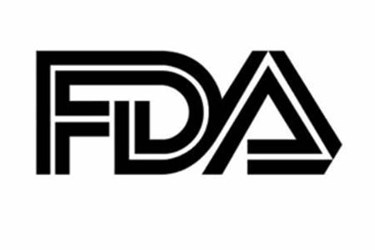How Will Changes At FDA Impact Clinical Trials?
By Ed Miseta, Chief Editor, Clinical Leader

The 21st Century Cures Act has been approved by both the House and Senate, and late last year was signed into law by President Obama. The 996-page bill includes changes to the way FDA regulates drugs, medical devices, and biologics. It also provides the agency with a half-billion in funding over the next 10 years to implement provisions that intend to get medical products to patients faster.
In 2017, we have seen a change in administrations and will likely see a change in leadership at the FDA. I took this opportunity to touch base with David Rosen, co-chair of the life science practice at Foley & Lardner LLP and a law practice consultant. Rosen has been practicing law for more than 20 years, is a trained pharmacist, and spent over 14 years at FDA including working as regulatory counsel, special assistant to the director of CDER (Center for Drug Evaluation and Research).
In this Q&A, Rosen shares his thoughts on the new legislation, changes coming to FDA, and why the patient perspective needs to remain a primary concern of the drug development industry.
Ed Miseta: How will the 21st Century Cures Act help patients who are enrolled in clinical trials?
 David Rosen: The 21st Century Cures Act is going to allow the FDA to focus on patient experience and get more of the patient’s perspective. This will include quality of life issues and those things that really impact patients on a regular basis. I believe this will benefit patients in trials. As we place a greater focus on patient-centered data, it will also provide FDA with more information on how to use drugs appropriately and eventually convey that information to practitioners and patients.
David Rosen: The 21st Century Cures Act is going to allow the FDA to focus on patient experience and get more of the patient’s perspective. This will include quality of life issues and those things that really impact patients on a regular basis. I believe this will benefit patients in trials. As we place a greater focus on patient-centered data, it will also provide FDA with more information on how to use drugs appropriately and eventually convey that information to practitioners and patients.
Miseta: Will this act help to keep companies focused on the patient perspective?
Rosen: It’s a good idea for sponsors to continue to get the patient perspective. It’s also good for them to utilize patient registries and patient outcome measures, really anything that forces sponsors to rethink metrics. What we now have is an express directive to both FDA and the drug development community in general. It instructs them to incorporate patient perspectives in their research.
Too often companies will focus on adequate and well-controlled clinical outcomes without looking at the real impact a trial might have on patients. I believe additional patient input will be a useful tool for investigators when used in conjunction with other data that demonstrates safety and effectiveness.
For example, we might say, “Let’s increase the survival rate in a cancer clinical trial by six months.” Patients are concerned about survival, but they are also concerned about getting sick, losing their hair, and other quality of life issues. We need to start taking a better look at that entire trial experience for the patient.
Miseta: One section of the bill will require FDA to provide additional guidance assisting sponsors with incorporating adaptive designs. Will that be good for the industry?
Rosen: I think so. The FDA has become more open to the use of adaptive clinical trial designs, and that’s a good thing. I was at FDA from 1978 through 1992. At that time we were pretty collaborative and interactive. Today, the drug development process is more interactive and collaborative than it’s ever been.
Another aspect of the bill that will help sponsors is the streamlining of regulations, which will provide more clarity, consistency, and guidance from FDA. The more the industry can understand and appreciate the FDA’s perspective, the better the entire drug development process will be.
One additional thing I’ll mention is the push on combination products—how they’re regulated and who has jurisdiction over them. For years sponsors have wondered what happens when you combine an FDA-approved product with a device. There have been some improvements in the regulation and refinement of combination products, which will be good for the industry.
Miseta: Why are adaptive approaches suddenly getting so much attention?
Rosen: With adaptive trials, I think we have to look at the disease state being addressed. I participate in a lot of product evaluation and early-stage drug development, and I can tell you picking the correct dose for a clinical trial is a very tricky process. It is not an exact science. If you miss the most effective dose, your trial can be in trouble. Of course, studying multiple doses in a factorial-type design can also get very expensive.
That being the case, I think we have to explore different possibilities and be willing to engage in discussions about the dosage. We need to know what type of trial designs work best, what is the appropriate patient population, who are the likely responders and be willing to learn from them. With the time and expense it now takes to complete a clinical trial, pharma and regulators need to have the ability to be more flexible.
Pharma does not have the ability to study four or five different doses to see where we are in the dose response curve. If a sponsor selects 25 mg and 100 mg as the proper dose amounts, they might find some patients actually need 50 mg. This is not an easy task to determine. It is also important to identify the appropriate patient population and who are the likely responders to treatment.
Miseta: What has been your impression of FDA Commissioner Robert Califf?
Rosen: There were groups that opposed his nomination, but I think he has done a really nice job. I worked under five different commissioners when I was at FDA, and I find him to be engaged. He understands the process and he has been communicative. Although he has been low-key, he has gotten things done and is really well-liked at FDA. It looks like Scott Gottlieb will be President Trump‘s nominee. He is a former associate commissioner and policy person and does not seem to be someone who will come in and gut the standards for drug trials.
Regardless of who steps in, we need to make sure the products gaining approval meet both the safety and efficacy requirements of a new drug. A primary goal of regulators must be doing what is in the best interest of their patients. An approval process demonstrating efficacy prior to approval should always be the appropriate standard to have for products that are allowed to be marketed to patients.
Miseta: Would you agree some streamlining could be advantageous to patients?
Rosen: When it comes to streamlining, there are many different ways to help facilitate and guide drug development. We have policies in place that are geared towards making sure patients afflicted with severely debilitating and life-threatening diseases can get access to new treatments when there are no alternative options available. I think FDA does a really nice job with those diseases.
In those instances, FDA works together with industry in a very collaborative manner. There are fast track, breakthrough therapy, and orphan drug designations. The agency understands that if something is going to have significant therapeutic benefit, we need to work together to get patients access to it as soon as it is deemed safe and effective.
Miseta: Are there any areas where more needs to be done by FDA?
Rosen: I have been in discussions recently with key opinion leaders on the subject of drugs that are not new chemical entities and do not offer significant therapeutic advantages. For example, how many different ACE inhibitors do we need on the market? At some point should we need to say there are 10 ACE inhibitors on the market, and unless yours has a major therapeutic benefit over the existing ones, regulator resources will be focused elsewhere.
There seems to be too many “me too” type products. It may be time to re-examine our priorities in terms of product development. The convenience factor of having multiple treatments to choose from is nice, but those drugs also drive up healthcare costs. Having to take two tablets instead of one is not the worst thing in the world.
Miseta: That’s one issue sponsors face. Another might be whether to focus on a treatment for a rare disease with a small market or put your efforts into a new drug with a much bigger market size.
Rosen: Definitely. It’s a philosophical situation, but it also has a huge impact on patient health. It’s easy to be on the outside and second guessing what companies are doing. But we also have to acknowledge that our cost for healthcare is spiraling upward, and we need to get that under control.
The new administration appears to be focused on pharmaceutical pricing, and I don’t think that focus is going to end anytime soon. I’m very nervous when I hear suggestions about patients being able to go outside the U.S. to get pharmaceutical products.
I have training as a pharmacist as well as an attorney, and I get concerned when I hear about people traveling to Tijuana, Mexico, to get drug products cheaper. More often than not, these “brand name” products turn out to be counterfeit. If we don’t figure out a process to handle that, we are going to see patients get hurt. It’s a scary situation. I have investigated counterfeit products, and these counterfeiters are very sophisticated. They manufacture a product that looks exactly like the brand products, including labeling and packaging. If you’re not looking carefully, you can easily get duped.
Miseta: Are there any other concerns you have over trial conduct?
Rosen: I do have concerns over the conduct of clinical trials and issues with clinical investigators, data fraud, and the individuals not following proper protocol. That is an area I have significant concerns about. I’ve had to defend a number of clinical investigators over the last three or four years, and I’m very concerned about the safety of patients participating in clinical trials. I have been presenting programs on this topic and I feel it is something that all of us in the industry need to take a closer look at.
